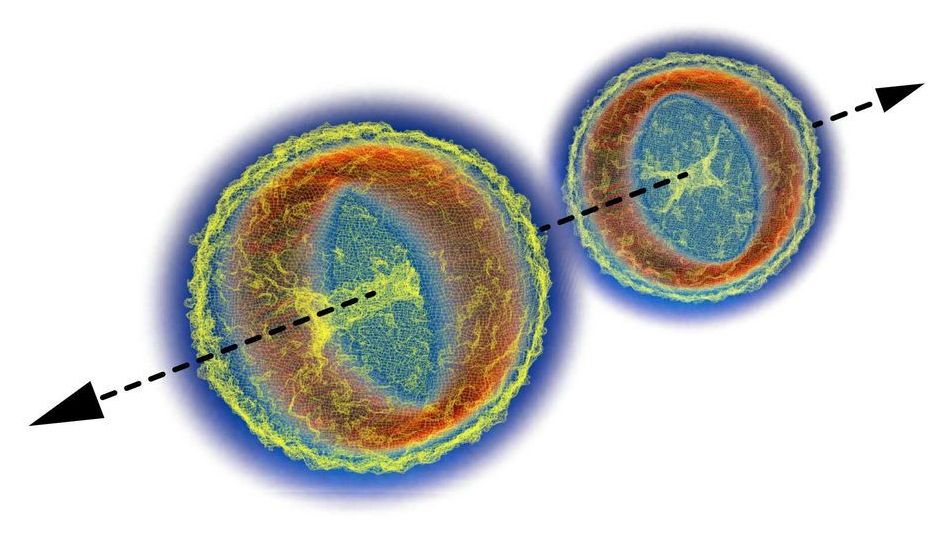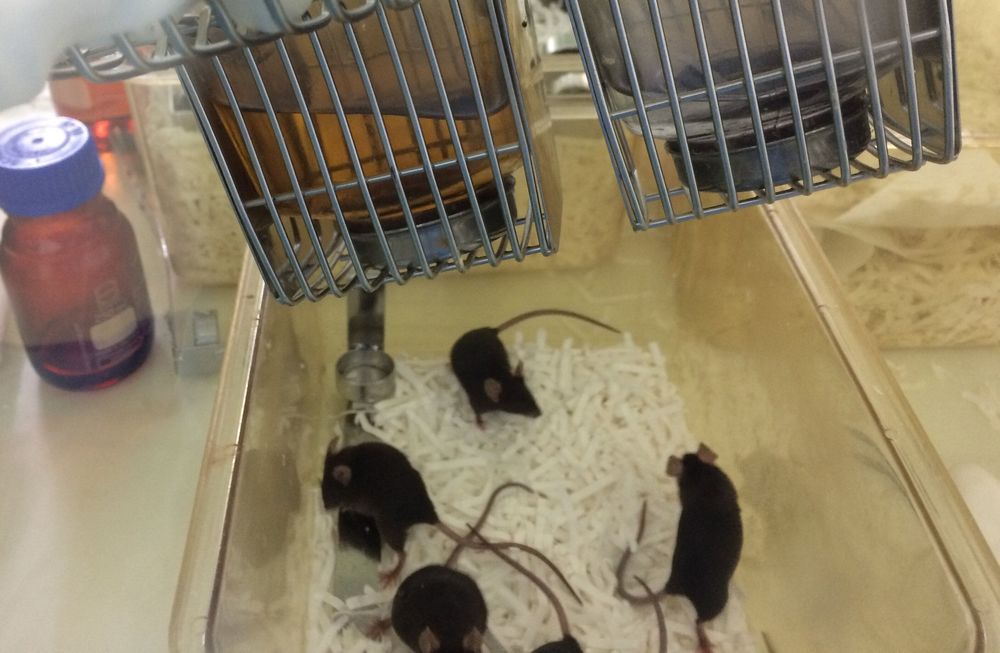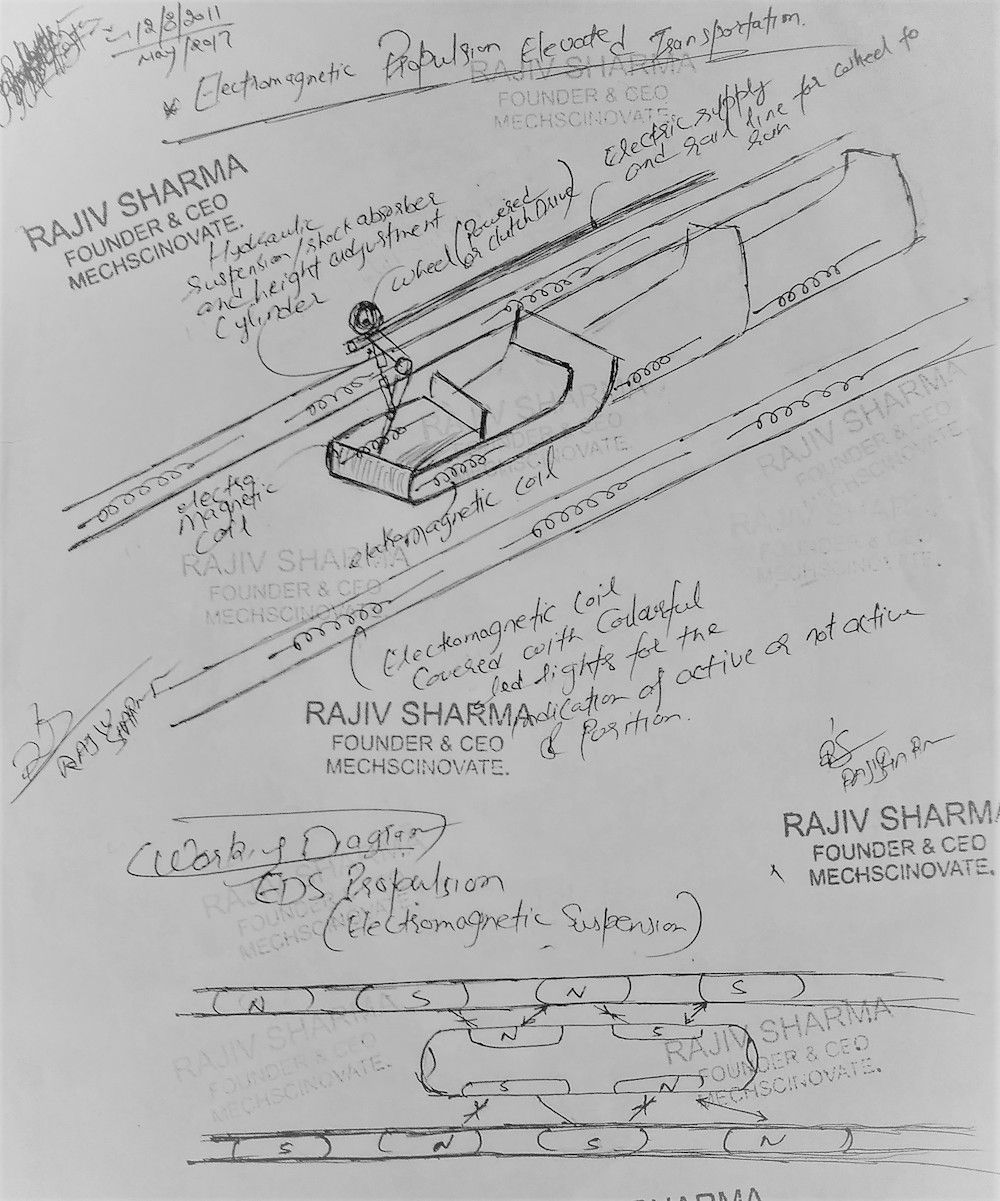Page 8777
May 23, 2019
New collider concept would take quantum theories to an extreme
Posted by Quinn Sena in categories: particle physics, quantum physics
A new idea for smashing beams of elementary particles into one another could reveal how light and matter interact under extreme conditions that may exist on the surfaces of exotic astrophysical objects, in powerful cosmic light bursts and star explosions, in next-generation particle colliders and in hot, dense fusion plasma.
Most such interactions in nature are very successfully described by a theory known as quantum electrodynamics (QED). However, the current form of the theory doesn’t help predict phenomena in extremely large electromagnetic fields. In a recent paper in Physical Review Letters, researchers from the Department of Energy’s SLAC National Accelerator Laboratory and their colleagues have suggested a new particle collider concept that would allow us to study these extreme effects.
Extreme fields sap energy from colliding particle beams—an unwanted loss that is typically mitigated by bundling particles into relatively long, flat bunches and keeping the electromagnetic field strength in check. Instead, the new study suggests making particle bunches so short that they wouldn’t have enough time to lose energy. Such a collider would provide an opportunity to study intriguing effects associated with extreme fields, including the collision of photons emerging from the particle beams.
Continue reading “New collider concept would take quantum theories to an extreme” »
May 23, 2019
Natural “Fasting” Molecule Exerts Anti-Aging Effects to Protect Vascular System
Posted by Paul Battista in categories: biotech/medical, life extension, neuroscience
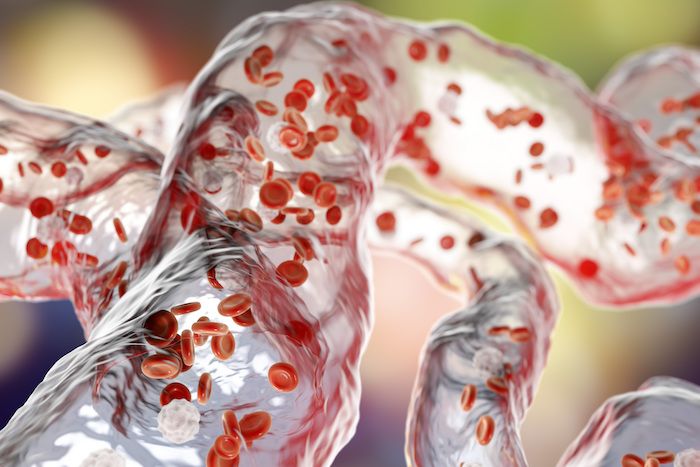 A molecule produced by the body during fasting or calorie restriction has anti-aging effects on the vascular system, which could reduce the occurrence and severity of human diseases related to blood vessels, such as cardiovascular disease, according to a study led by Georgia State University.
A molecule produced by the body during fasting or calorie restriction has anti-aging effects on the vascular system, which could reduce the occurrence and severity of human diseases related to blood vessels, such as cardiovascular disease, according to a study led by Georgia State University.
“As people become older, they are more susceptible to disease, like cancer, cardiovascular disease and Alzheimer’s disease,” said Dr. Ming-Hui Zou, senior author of the study. “Age is the most important so-called risk factor for human disease. How to actually delay aging is a major pathway to reducing the incidence and severity of human disease.
May 23, 2019
Aspirin green light for brain bleed stroke patients, study finds
Posted by Paul Battista in categories: biotech/medical, neuroscience
People who suffer a stroke caused by bleeding in the brain—known as brain haemorrhage—can take common medicines without raising their risk of another stroke, a major clinical trial has found.
Researchers say the findings are reassuring for the thousands of people who take the medicines to reduce their risk of heart attack and another common type of stroke caused by blood clots in the brain.
These everyday treatments—known as antiplatelet medicines—work by slowing or stopping blood from clotting. They are often prescribed to older people because they can lower risk of heart attack and stroke caused by a blood clot.
Continue reading “Aspirin green light for brain bleed stroke patients, study finds” »
May 23, 2019
Possible link between infant gut microbiome and development of allergies
Posted by Paul Battista in categories: biotech/medical, food, health
A team of researchers affiliated with several institutions in Korea and Australia have found a possible link between the gut microbiome in infants and development of allergies. In their paper published in the journal Science Advances, the group describes their study of a certain antibody response in young mice and what they found.
Food allergies have been widely reported in the past few years, particularly in children. Scientists have been taking a closer look at the causes of the seemingly sudden rise in the number of people who are allergic to certain foods. In this new effort, the researchers looked into the possibility of a connection between food allergies and the gut biome.
The research started after some team members noticed that lab mice raised in a sterile environment (who also had no gut microbiome) expressed higher levels of immunoglobulin E (IgE) when they matured enough to start eating solid food. Prior research has shown that IgE is a mediator that plays a role during an allergic response—when allergens are detected, IgEs send out signals alerting other parts of the immune system, which in turn release chemicals that result in inflammation, a major allergy symptom.
Continue reading “Possible link between infant gut microbiome and development of allergies” »
May 23, 2019
Transplant of Neural Stem Cells into ALS Patients Safe, Phase 1 Trial Shows
Posted by Quinn Sena in categories: biotech/medical, neuroscience
Injection of human neural stem cells into the spinal cord of people with amyotrophic lateral sclerosis (ALS) was found safe and did not cause adverse effects even two years after the transplant, results from a Phase 1 clinical trial show.
Trial findings were published in the study, “Results from Phase I Clinical Trial with Intraspinal Injection of Neural Stem Cells in Amyotrophic Lateral Sclerosis: A Long-Term Outcome,” in the journal Stem Cells Translational Medicine.
May 23, 2019
Electromagnetic Propulsion Elevated Transportation System
Posted by Quinn Sena in categories: engineering, transportation
The Create the Future Design Contest was launched in 2002 by the publishers of NASA Tech Briefs magazine to help stimulate and reward engineering innovation. The annual event has attracted more than 8,000 product design ideas from engineers, entrepreneurs, and students worldwide.
May 23, 2019
“Quacks” blamed for HIV outbreak that infected hundreds of kids
Posted by Quinn Sena in categories: biotech/medical, health
May 23, 2019
A winged jet suit could be the next step in human flight
Posted by Quinn Sena in category: futurism

You won’t be commuting to the office in it, but by this time next year it could be an entertaining extreme sport.
May 23, 2019
No Need To Fear Universe Ending In ‘Collision With Bubble Of Nothingness’(False Vacuum Collapse Of Higgs Field)
Posted by Quinn Sena in category: existential risks
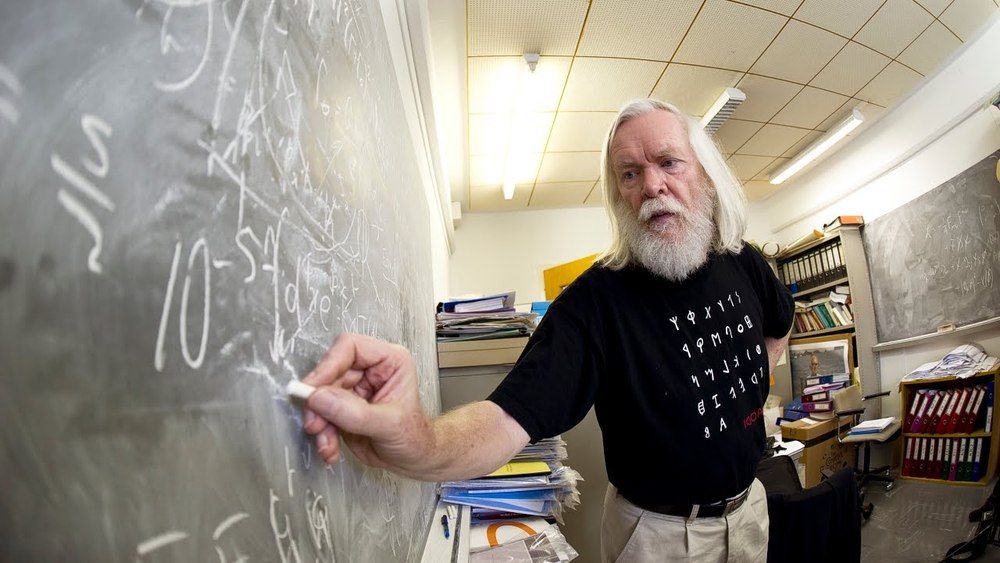
This is an article in New Scientist that’s being shared in social media which says it’s a new caclulation of the future of the Universe according to the theory of false vacuum. It’s scaring many people because when you read it as far as it goes, before you have to pay to read, it doesn’t give a timeline, so they think it could happen any moment. Also, because it says “there’s a chance” that it has already collapsed in a distant corner of the cosmos. I’m writing this as part of a series of posts to help people scared of false or exaggerated doomsdays, which often get to the top of Google, Apple News and Facebook trending and are read by many people who have no idea how to take them including children as young as 14 and sometimes much younger. They can get very scared about these stories, have panic attacks and are sometimes suicidal because they can’t bear the fear.
Short Summary

